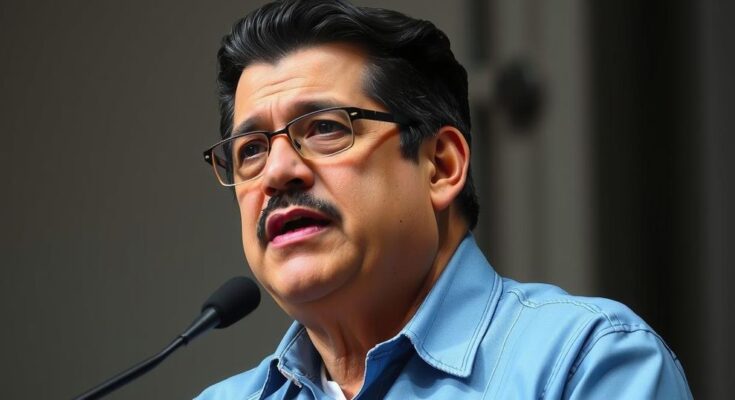The Venezuelan populace is enduring escalating repression under Nicolás Maduro’s government in the aftermath of a contentious election. The climate of fear has intensified, impacting everyday lives as dissenters face severe consequences. Six opposition affiliates have sought asylum in the Argentine embassy, highlighting both the regime’s tactics of intimidation and the precariousness of civil liberties in the nation. The situation reflects a stark reality of oppression that leaves ordinary citizens vulnerable.
In recent months, Venezuelans have experienced intensifying repression under Nicolás Maduro’s regime, rendering a grim reality that extends beyond the historical crises they have endured. Following the July 28 election, in which Maduro faced substantial opposition, the atmosphere of fear has become pervasive as everyday citizens become increasingly cautious of their surroundings and speech. Venezuelans previously endured the economic turmoil that characterized the years following Hugo Chávez’s death; offers of leniency from Maduro came with an unwritten agreement to avoid dissent, which citizens broke during the elections.
Despite extensive evidence suggesting a defeat, Maduro maintains control with a reign of terror, jailing thousands of dissenters and subjecting many to diverse forms of torture. Today, repression has escalated into a new semblance that strikes at the heart of civil liberties, with ordinary citizens being targeted merely for participating in protests. Fear envelops the nation as citizens self-censor and limit their communications, with reports suggesting increasing scrutiny of digital exchanges.
Six opposition figures affiliated with María Corina Machado have sought refuge within the Argentine embassy, only to be constrained by a tightening grip from the government. The Maduro regime has aggressively delineated new rules, establishing a tortuous environment that complicates any efforts for those who oppose his administration. Amid these developments, the government has signaled calculated restraint regarding more prominent opposition leaders, channeling its retribution toward lower-profile supporters. As repression deepens, Venezuelans face a trial not just of liberty, but one of survival in a climate thick with oppression.
The situation in Venezuela has long been characterized by a series of crises following the passing of Hugo Chávez, who was succeeded by Nicolás Maduro. The aftermath has seen drastic economic hardships and widespread violence normalized in society. In the lead-up to the July 28 election, a momentary sense of hope among citizens was shattered as Maduro’s administration instituted more severe measures of control and suppression. The recent increase in repression indicates a worrying trend indicative of the administration’s strategies in clamping down on dissent, resulting in a climate of constant anxiety among the populace.
In conclusion, the situation in Venezuela under Nicolás Maduro’s leadership is marked by intensified repression following a controversial election. The once-fleeting hope for improvement in citizen life has devolved into a climate of widespread fear, with citizens becoming increasingly hesitant to express dissent. The targeting of supporters of opposition figures illustrates a calculated strategy to maintain power at any cost. As such, the implications for human rights and civil liberties in Venezuela remain dire. Without substantial international pressure and advocacy, these troubling developments may continue unabated as Maduro’s regime further entrench itself.
Original Source: www.theatlantic.com




